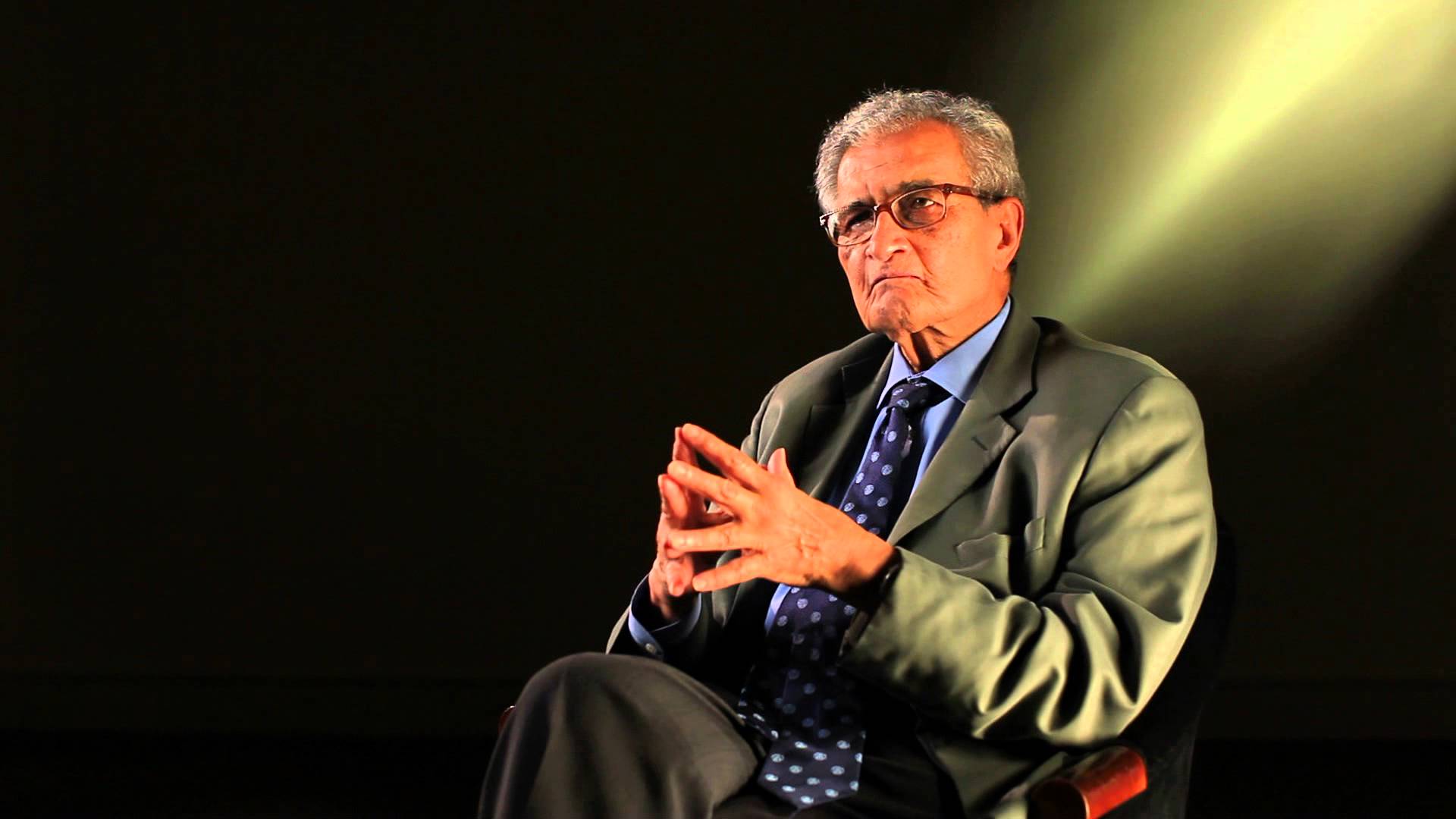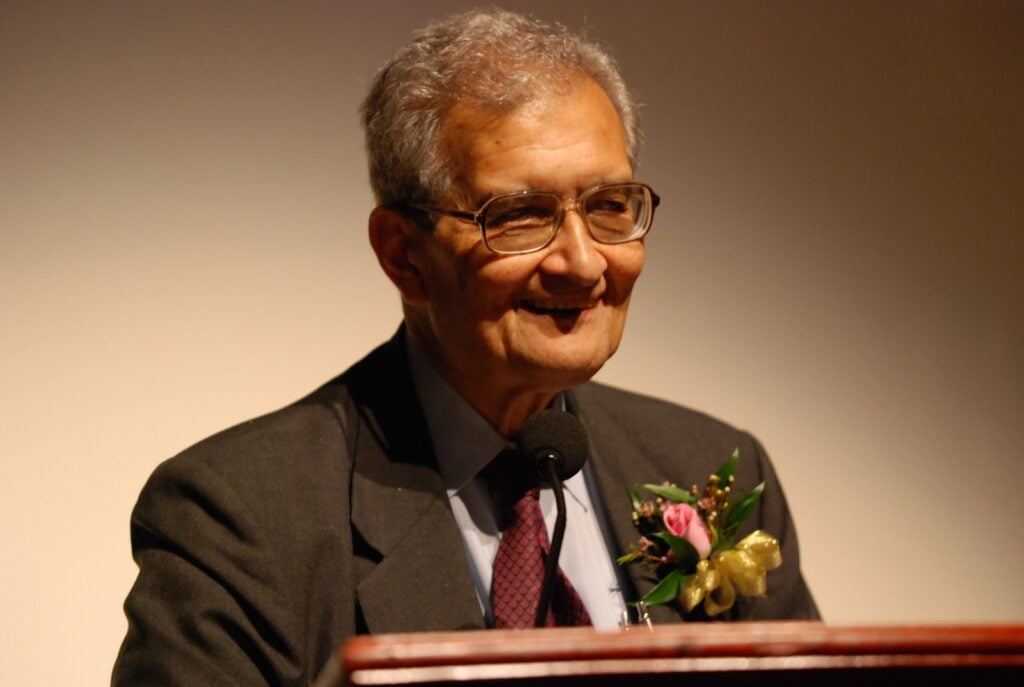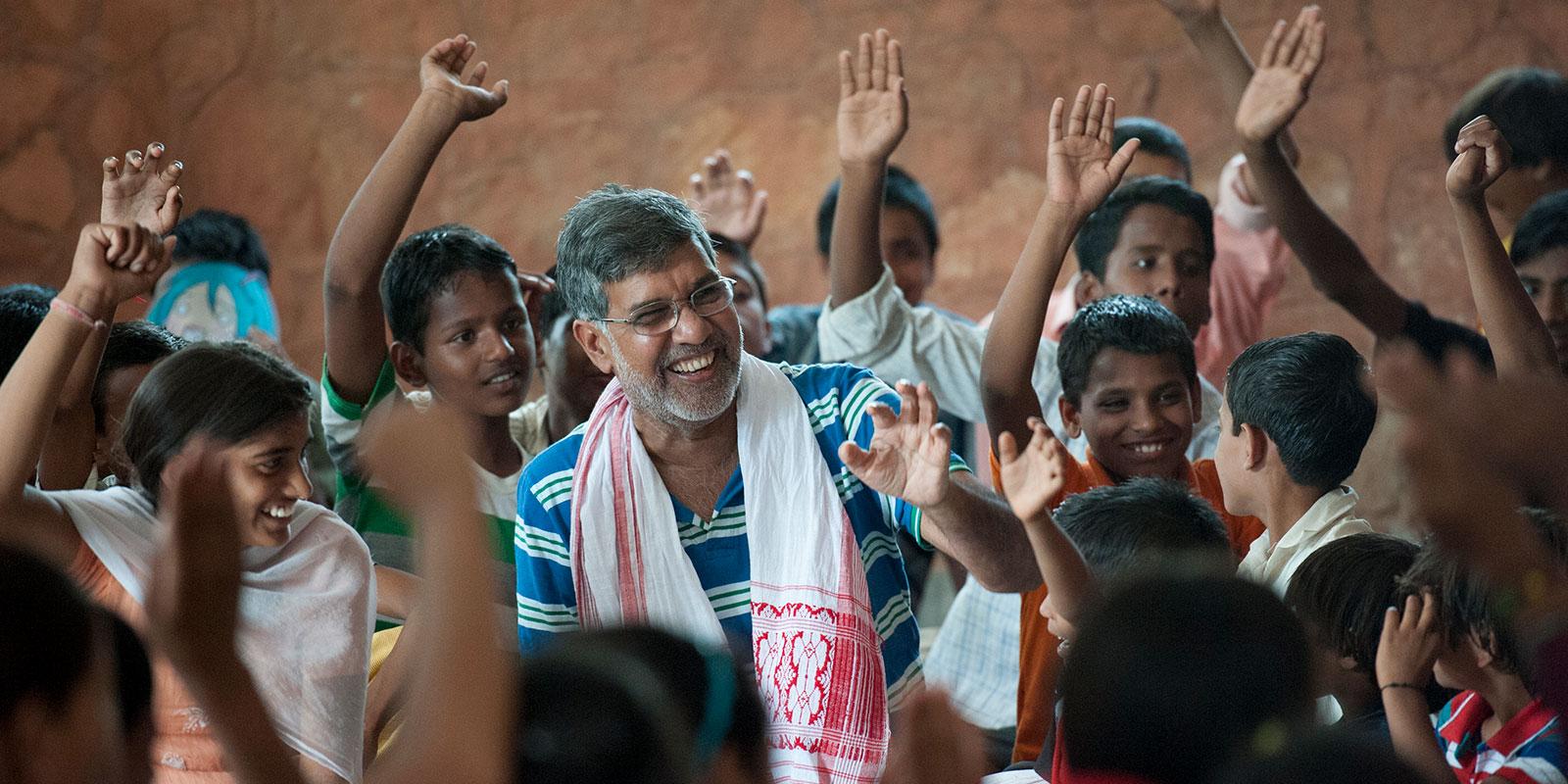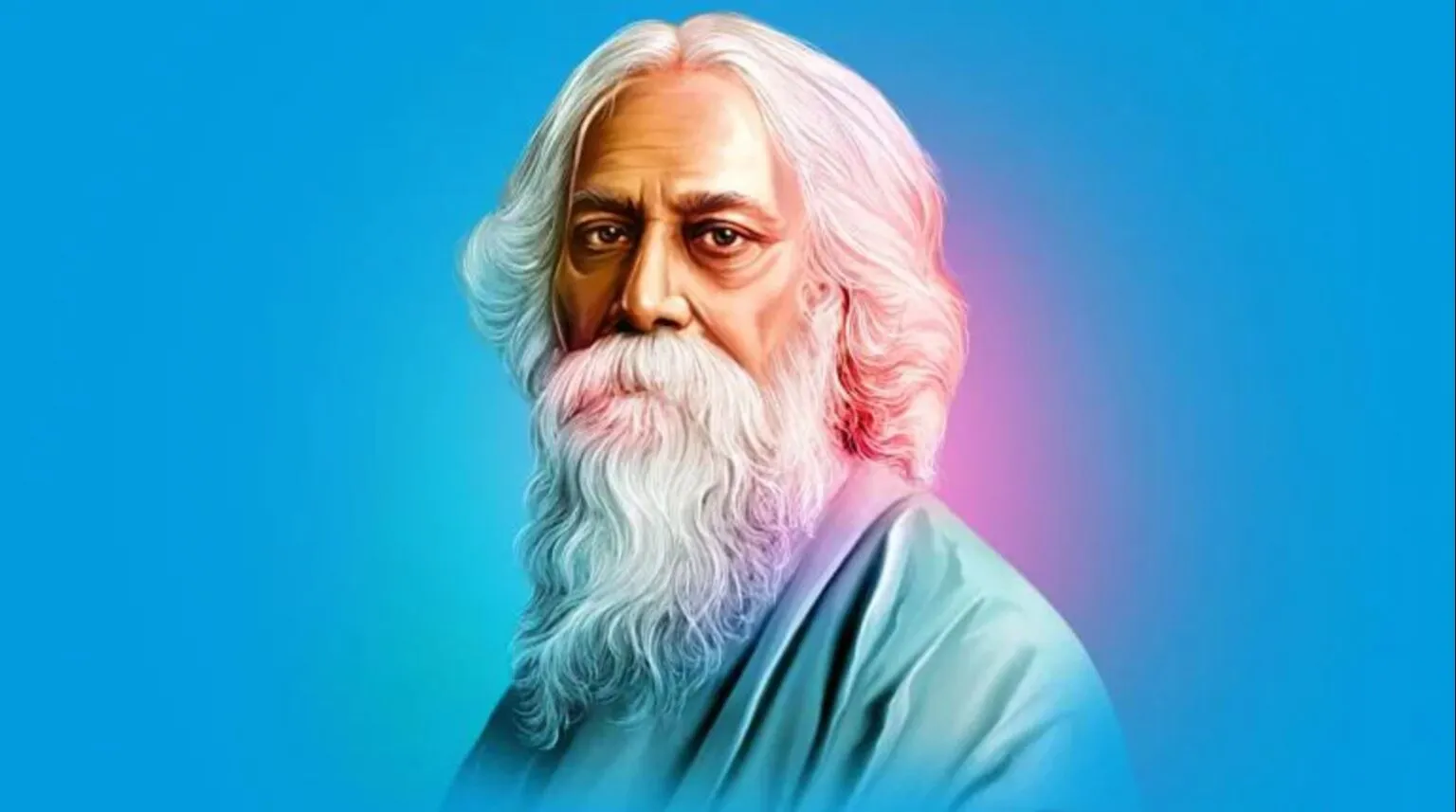Amartya Sen Biography : Family , Spouse, Books & noble prize

The famous Indian economist and philosopher Amartya Sen has spent his life-fighting poverty, starvation, and inequality. He won the Nobel Memorial Prize in Economic Sciences for his welfare economics and social justice innovations.

Let’s talk about Amartya Sen in this blog. Come to learn about a guy who changed our thoughts about money and how people can be happy and do well in life.
Family Tree
| Name | Occupation | Relationship |
|---|---|---|
| Ashutosh Sen | Soil Scientist, Professor of Chemistry | Father |
| Amita Sen | – | Mother |
| Nabaneeta Dev Sen | Writer | Ex-Wife |
| Eva Colorni | Economist | Late Wife |
| Emma Georgina Rothschild | Professor | Current Wife |
| Nandana Dev Sen | Actress | Daughter |
| Antara Dev Sen | Journalist | Daughter |
| Kabir Sen | Hip Hop Artist, Music Teacher | Son |
| Indrani Sen | Journalist | Daughter |
Early Life and Education
Amartya Sen early life and education:
| Life Stage | Details |
|---|---|
| Birth | Amartya Sen was born on November 3, 1933, in Santiniketan, India. |
| Family | He was born into a Baidya family. His father was a professor of chemistry. |
| Name | Rabindranath Tagore, gave Amartya Sen his name. |
| Undergraduate Education | Sen was educated at Presidency College in Calcutta (now Kolkata). He earned an undergraduate degree from Presidency College at Calcutta. |
| Postgraduate Education | He went on to study at Trinity College, Cambridge, where he received a B.A. (1955), an M.A. (1959), and a Ph.D. (1959). |
Childhood and Family Background
Scholarly parents in Santiniketan, Bengal Province, British India, gave birth to Amartya Sen on November 3, 1933. His father taught chemistry at Dhaka University, while his mother was the daughter of a distinguished scholar. Sen experienced intellectual discourse and thrived in a dynamic academic environment growing up. This early encounter shaped his academic pursuits and social justice zeal.
Education and Overcoming Adversity
St Gregory’s School and Patha Bhavana in Dhaka were Sen’s first schools. While in Presidency College in Calcutta, he had mouth cancer, which changed his education. Sen persevered and beat the sickness to continue his education. His cancer experience made him realize how important health and well-being are to human progress.
Influence of Presidency College
Presidency College shaped Sen’s academic and intellectual growth. Excellent college lecturers and peers fostered his interest in economics. Sen actively participated in politics and endorsed left-wing ideas. His political and economic experiences increased his commitment to investigating and addressing poverty, inequality, and social justice.
Pursuit of Higher Education
Sen attended Trinity College, Cambridge, after graduating from Presidency College. He received a second B.A. in economics there, expanding his knowledge. His varied schooling in India and overseas affected his social, economic, and cultural perspectives. Sen’s education prepared him for welfare economics, social choice theory, and economic and social justice.
Academic Career
Amartya Sen academic career:
| Institution | Position |
|---|---|
| Jadavpur University | Faculty member |
| Delhi School of Economics | Faculty member |
| London School of Economics | Faculty member |
| University of Oxford | Faculty member |
| Massachusetts Institute of Technology | Faculty member |
| Princeton University | Faculty member |
| Cornell University | Faculty member |
| Harvard University | Professor of Economics and Philosophy |
| Trinity College, University of Cambridge | Master |
Amartya Sen taught at some of the best schools in India, the UK, and the US, like Harvard, Oxford, LSE, and Delhi Universities. He enjoys learning and has learned a lot from many schools. This helped him understand society, money, and culture better.
As a teacher, Amartya Sen significantly impacted economics and social sciences. His main idea was the “capability approach” This means we should consider what people can do and how free they are when we judge their performance. This is different from just looking at a country’s money.
Sen found that what happens in economics, politics, and society matters in people’s lives. He wrote many influential books that show how much he knows. Some famous ones are “Development as Freedom” and “The Idea of Justice”.
In these books, he talks about poverty, inequality, and what qualities are essential for a good life. His writings have inspired smart people and leaders to tackle big problems and make the world more fair.
- Amartya Sen held teaching positions at Delhi University, the London School of Economics, Oxford University, and Harvard University.
- He has contributed significantly to the field of economics and social sciences.
- Sen’s “capability approach” concept emphasizes individual capabilities and freedoms in assessing human well-being and development.
- His influential books, such as “Development as Freedom” and “The Idea of Justice,” explore poverty, inequality, and social justice.
Contributions to Welfare Economics and Social Justice
Amartya Sen has greatly influenced welfare economics and social justice. He has questioned economic paradigms that only assess development by revenue and growth. Sen proposes a broader strategy that recognizes individual freedoms and abilities.
1. Reframing Development: Sen’s “capability approach” has changed how we view development. He stresses individual abilities and freedoms in judging human well-being and development. Sen believes progress should extend human margins and talents, not only economic prosperity. This strategy has shifted the focus from revenue to quality of life and chances.
2. Understanding Famine: Sen’s work on famine causes and prevention was noteworthy. He has shown that social, economic, and political variables impact famines and food shortages. Sen has stressed the need to address these root problems and stressed social justice in famine avoidance. By studying how money, politics, and social issues interact, Sen has improved hunger relief and famine relief.
3. Broadening Social Choice Theory: Sen’s social choice theory contributions are equally noteworthy. He broadened the standard framework to accommodate more decision-making variables. Sen believes we must weigh fairness, injustice, social justice, and individual desires. Sen helped us learn more about how choices impact society by adding these ideas to social choice theory.
4. Promoting Social Justice: Sen championed social justice throughout his career. He has stressed the need to address inequality, poverty, and other social evils to develop appropriately. Sen’s work has influenced governments and intellectuals worldwide to prioritize social justice and create equality and well-being programs.
He uses different ways of thinking and cares a lot about making things fair. This has influenced how we understand welfare economics and our idea of a fair and equal society.
Awards and Recognition
Amartya Sen awards and recognitions:
| Award/Recognition | Year |
|---|---|
| Nobel Prize in Economic Sciences | 1998 |
| Alan Shawn Feinstein World Hunger Awards | 1990 |
| Catalonia International Prize | 1997 |
| Meister Eckhart Prize | 2007 |
| Edgar de Picciotto International Prize | 2012 |
| Charleston-EFG John Maynard Keynes Prize | 2015 |
| Johan Skytte Prize | 2017 |
| Peace Prize of the German Book Trade | 2020 |
| Eisenhower Medal | 2000 |
| Bodley Medal | 2019 |
Amartya Sen did really important things in economics and fairness. He won a big prize 1998 called the Nobel Memorial Prize in Economic Sciences for improving economies and people’s lives. This prize showed that what Sen did was super important.
Then, in 1999, Sen got another significant award in India called the Bharat Ratna. It’s like the highest award you can get there. He got it because he did many great things in economics and always wanted things to be fair. This award proved Sen’s work influenced schools and made good policies.
Sen worked hard to fight against poverty and unfairness, and he inspired smart people and leaders worldwide. Sen got many other prizes for his work that made life better for people. His bright economic ideas changed people’s thinking, and leaders used them to make good policies.
In schools and society, Sen made a significant impact on how we see and deal with global issues. People liked and respected Sen because he did important things. He wanted to improve people’s lives, had innovative ideas for development, and cared a lot about fairness. The awards he got show how much he changed economics and how dedicated he was to making things fair for everyone.
The Concept of “Capability Approach”
Amartya Sen’s “capability approach” to economics and social justice is crucial. Sen believes we should prioritize liberties and capacities over money. He values property ownership, skills, economic prosperity, and happiness.
Sen rejects the assumption that progress depends on wealth. Being helpful and having good health, education, and housing are crucial to him. Capabilities help you live well.
Sen also believes that highlighting abilities can increase possibilities for all. He understands everyone has strengths and weaknesses and that advancement should eliminate obstacles.
Understanding development economics has changed with the capabilities approach. It’s about ending poverty and ensuring fulfilling lives. This thinking promotes social justice, poverty reduction, and personal growth.
Sen’s capabilities approach affected health, education, and gender equality research. It shows how money and politics affect talent and happiness. Comparing human abilities helps academics and politicians combat poverty, injustice, and unfairness.
Notable Books by Amartya Sen
Indian economist and philosopher Amartya Sen has written several influential works on economics and social sciences. His publications address poverty, inequality, social justice, and human growth through individual abilities. Some of his most significant works:
- “Development as Freedom”: According to Sen in this book, development should promote human freedoms and capabilities, not only economic prosperity. He studies economic progress, political liberty, social possibilities, and well-being.
- “The Idea of Justice”: Sen explains his alternative justice theory in his work. He promotes considering all viewpoints and talents, especially neglected or disadvantaged ones. Sen questions traditional justice and provides ways to make societies more egalitarian and inclusive.
- “Poverty and Famines: Entitlement and Deprivation Essay”: Sen examines the causes and effects of famine in this influential essay. He believes social, economic, and political reasons and food shortages cause famines. Sen’s analysis illuminates tackling these root issues and stressing social justice in famine avoidance.
- “The Argumentative Indian”: This book explores Indian intellectual history and variety. Sen examines the country’s culture, politics, and society, highlighting pluralism’s discourse, debate, and intellectual freedom. He discusses how India’s history for discussion has affected its identity and growth.
Here’s a table of all of the books written by Amartya Sen:
| Book Title | Year Published |
|---|---|
| The Argumentative Indian: Writings on Indian History, Culture and Identity | 2005 |
| Development as Freedom | 1999 |
| Identity and Violence: The Illusion of Destiny | 2006 |
| The Idea of Justice | 2009 |
| Home in the World: A Memoir | 2021 |
| On Ethics and Economics | 1987 |
| Poverty and Famines: An Essay on Entitlement and Deprivation | 1981 |
| Inequality Reexamined | – |
| A Wish a Day for a Week | 2014 |
| The Country of First Boys | 2015 |
| Rationality and Freedom | 2002 |
These and other publications demonstrate Amartya Sen’s interdisciplinary approach to social concerns. Sen’s books show how some people are very poor and mistreated and how we can make the world fairer and more inclusive. They inspire smart people and decision-makers everywhere to create a better future for everyone.
Influence on the Field of Economics and Social Sciences
Economic and social scientist Amartya Sen accomplished much. Questioning economic assumptions changed development and well-being thinking. Sen believes skill and freedom help explain human growth.
Sen proposed the “capability approach” Development should go beyond profit. Prioritize freedom and skill. Sen believes we should evaluate success by how much individuals can accomplish their ambitions, not by money or possessions.
Sen’s famine research also taught us. He proved social, economic, and political factors create famines. Fixing these fundamental causes and ensuring fairness can prevent famines.
Sen studies economics, politics, and society’s effects on well-being. His opinion isn’t to study economics alone. Sen has inspired scholars to explore the social context.
Amartya Sen had a significant impact on how we understand economics and society. He looked at people’s abilities and freedoms, studied famines, and brought everything together to improve development and fairness. Sen motivates researchers and leaders worldwide to fight poverty, inequality, and social injustice.
Legacy and Impact
Amartya Sen has changed our views on money and life. He altered our view of development and human well-being. Sen suggested considering people’s liberties and abilities in addition to money and economic growth.
What Sen called the “capability approach” transformed how we judge people’s and society’s performance. He stated we should choose freedom and capability over profit. This perspective has made us focus more on poverty, inequality, and fairness.
Sen also discovered that famines aren’t just about food shortages. He showed that society, money, and politics matter. Knowing these facts helps prevent famines.
Amartya Sen examined how money, politics, and society affect people’s lives. His thoughts have influenced many, including leaders, to consider these factors when helping countries and being fair.
Conclusion
Amartya Sen influenced economics and social sciences. His views on poverty, fairness, and human potential altered our minds. He won the 1998 Economics Nobel Prize for his crucial contribution. Sen’s “capability approach” has revolutionized development and inspired leaders worldwide.
Sen wrote landmark publications, including “Development as Freedom” and “The Idea of Justice” These books demonstrate his importance as a thinker. His ideals challenge researchers and leaders to make the world fairer.
Sen’s thoughts go beyond academia. They impact life. Authorities and activists use his theories to demand social change.
He cares about fairness and wants to tackle poverty’s leading causes. He champions the weakest.
FAQ’s
Who is Amartya Sen?
Amartya Sen is an eminent economist and philosopher known for his groundbreaking work on welfare economics and social justice.
What are some of Amartya Sen’s notable contributions to the field of economics?
Amartya Sen is renowned for his “capability approach” concept and extensive research on poverty, development, and inequality. He has also made significant contributions to welfare economics and social choice theory.
What are the Amartya Sen’s notable books?
Amartya Sen has authored several influential books, including “Development as Freedom,” “The Idea of Justice,” and “Poverty and Famines.” These works have significantly impacted the fields of economics and social sciences.
What awards and recognition has Amartya Sen received?
Amartya Sen received the Nobel Prize in Economic Sciences in 1998 for contributing to welfare economics. He has also received numerous other prestigious awards and honors throughout his career.


